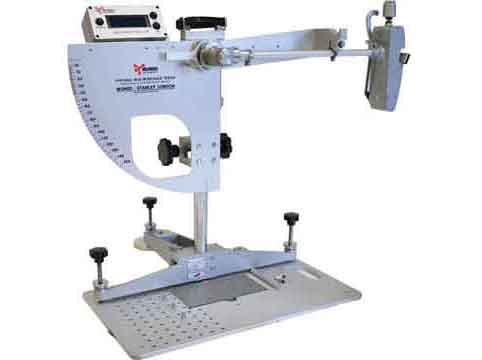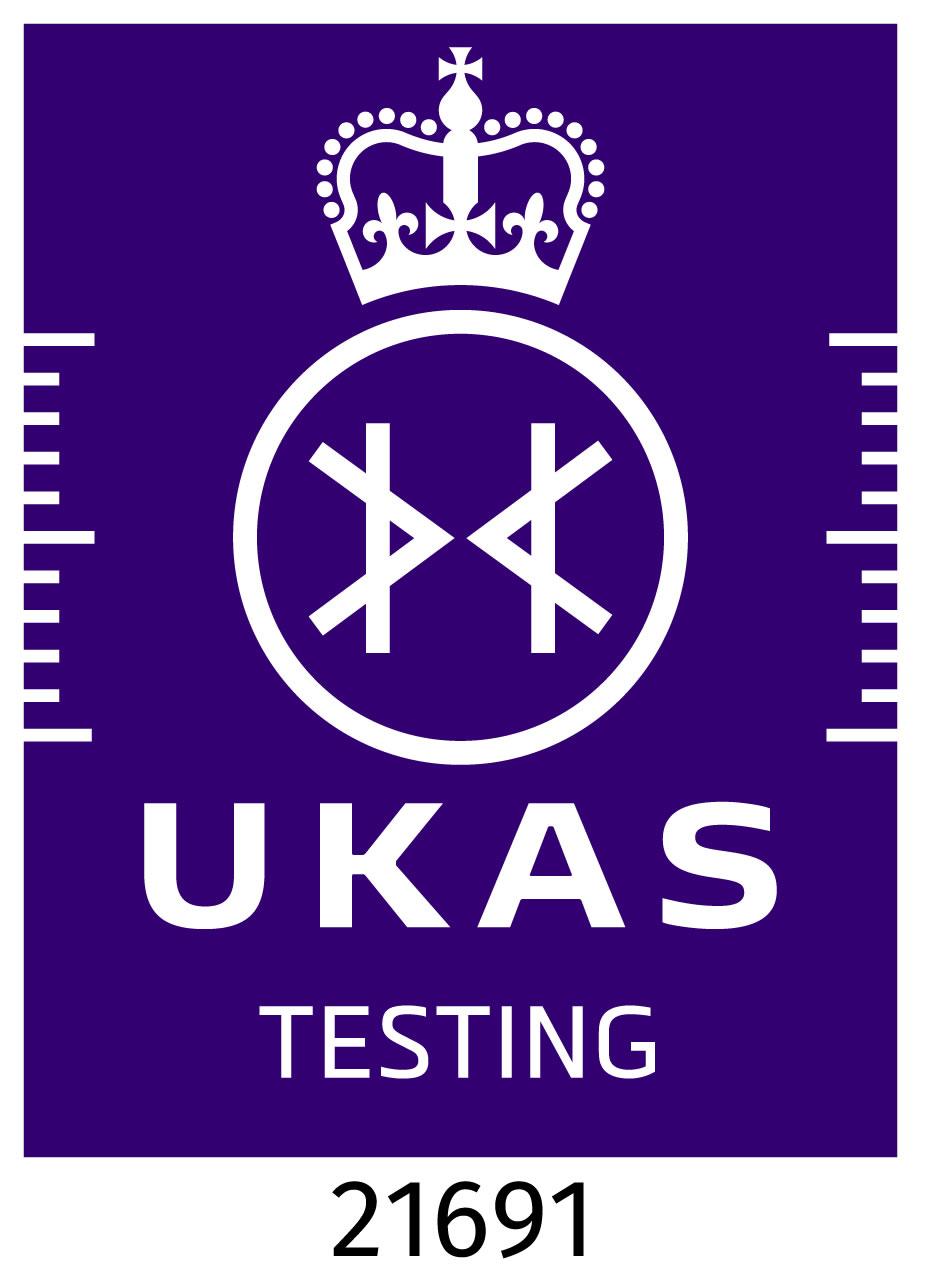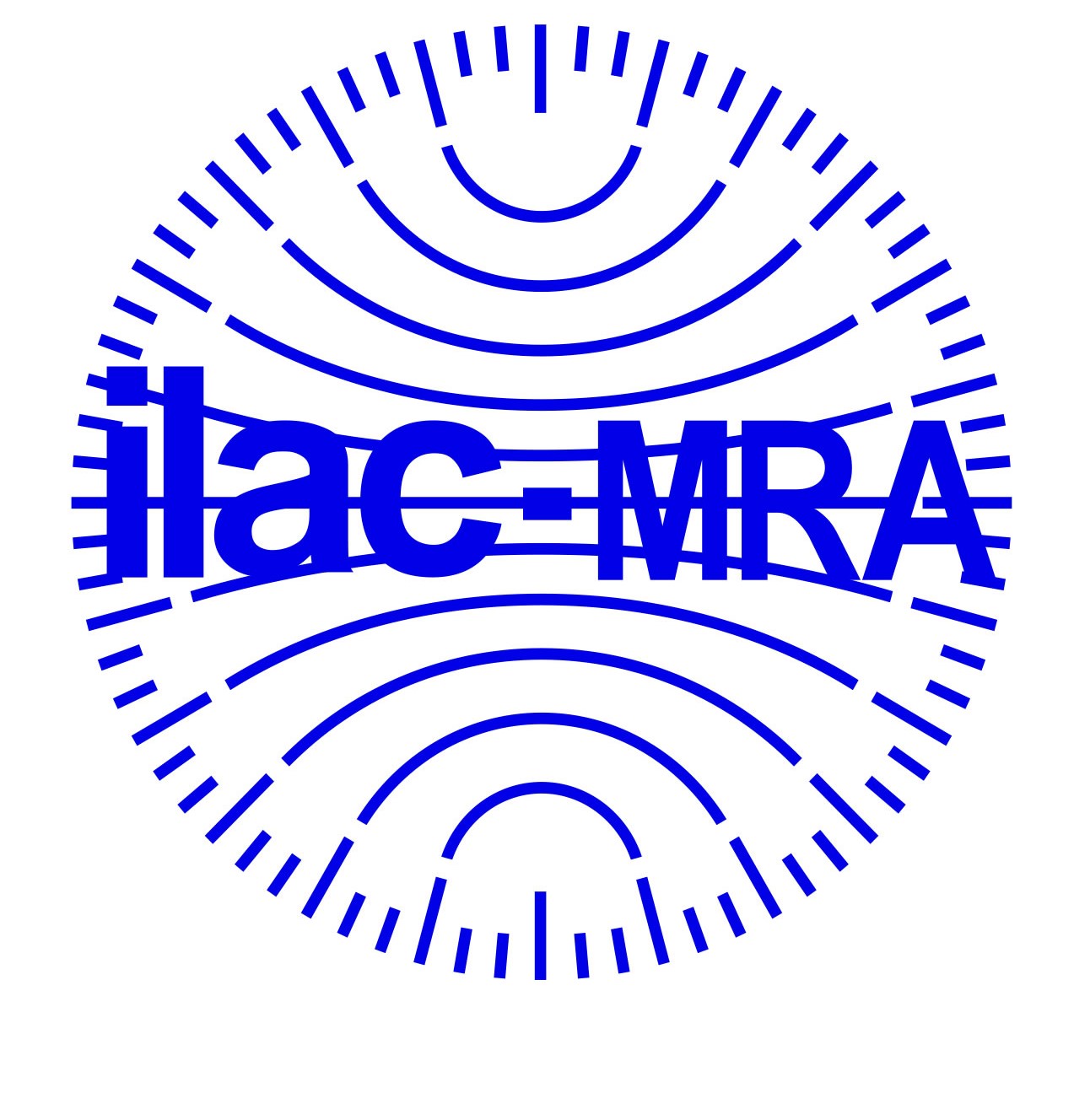A Portable Skid Resistance Tester (also known as the British Pendulum Tester) is an essential tool for anyone with a duty to minimize the risk of accidents arising as a result of slippery roads and floor surfaces. This device is also used to investigate the cause of accidents after they have taken place.
This Portable Skid Resistance Tester is used extensively by health & safety consultants, floor and tile manufacturers, material testing laboratories, highway agencies, local councils, leisure centers, expert witnesses, cleaning and maintenance companies, facility managers and many others.
Manufactured by hand by at our facility in the United Kingdom, the Munro Stanley Portable Skid Resistance Tester complies in every detail with all relevant international standards.
- BS EN 13036-4:2011
- BS 7976-1:2002+A1:2013
- BS EN 1097-8:2009
- BS 812-114:1989
- ASTM E303
- AS/NZS 4586-2013
- AS/NZS 4663-2013.
How it Works
The Portable Skid Resistance Tester operates according to the Izod principle. In operation, a pendulum of a known mass rotates about a vertical spindle. The head of the pendulum is fitted with a rubber slider which has a specific hardness and resilience. When released from a horizontal position, the pendulum head strikes the test surface with a constant velocity. The distance traveled by the pendulum after striking the surface is determined by the friction resistance of the sample surface. The Pendulum Test Value (PTV), which corresponds to the co-efficient of friction times 100, can be read directly from the clearly engraved scale.
Why use Skid Resistance Tester / Pendulum Tester
-Protect yourself from insurance claim costs and potential criminal prosecution
-All test equipment carries the appropriate UKAS calibration certification, which is freely available on request.
-Pendulum Slip Test Service Reliable and professional.
-Understand the level of risk -Avoidance of injuries

Uses of Pendulum Tester
Material Testing:
Impact Resistance: Pendulum testers are widely used to assess the impact resistance of materials, such as polymers, metals, ceramics, and composites. This is crucial in determining the material's ability to withstand sudden forces or shocks.
Hardness Testing: Some pendulum testers are designed to measure the hardness of materials by evaluating the rebound or deformation after impact. This is particularly important in quality control and material selection for applications where hardness is a critical factor.
Quality Control in Manufacturing:
Pendulum testers are essential in manufacturing industries to ensure that materials meet specified quality standards. By assessing impact resistance and hardness, manufacturers can identify potential weaknesses or defects in materials before they are used in the production process.
Product Development:
In the development of new materials or products, pendulum testing provides valuable data on how different materials respond to impact. This information is crucial for designing products that meet safety and performance requirements.
Construction Industry:
Pendulum testers are employed in the construction industry to evaluate the impact resistance of building materials such as concrete, steel, and polymers. This helps ensure the durability and safety of structures.
Automotive Testing:
In the automotive industry, pendulum testers are used to assess the impact resistance of materials used in vehicle components. This includes testing the resilience of materials in bumpers, safety features, and other critical parts.
Sports Equipment Testing:
Manufacturers of sports equipment, such as helmets and padding, use pendulum testers to evaluate the impact resistance and safety of their products. This is especially important in sports where the risk of impact-related injuries is high.
Research and Development:
Scientists and researchers use pendulum testers in laboratories to study the impact behavior of various materials. This information contributes to the development of new materials and improved understanding of material properties.
Compliance Testing:
Pendulum testing is often used to ensure that materials and products comply with industry standards and regulations related to impact resistance and hardness.
Application of Pendulum Tester
Slip Resistance Testing
One of the primary applications of the pendulum tester is in assessing slip resistance. From public walkways to industrial floors, this testing method ensures that surfaces meet safety standards and minimize the risk of accidents.
Impact Resistance Analysis
Beyond slip resistance, the pendulum tester aids in evaluating how well materials withstand impact. This is particularly crucial in industries where materials face frequent stress and strain.
Pendulum Tester in Industry
Flooring Industry
In the flooring industry, where safety is paramount, pendulum testing has become a standard practice. Manufacturers and installers utilize this tool to guarantee that flooring materials meet regulatory slip resistance requirements.
Manufacturing Sector
In manufacturing, the pendulum tester plays a pivotal role in quality control. Whether testing the slip resistance of conveyor belts or assessing the impact resistance of machine components, this device ensures that materials adhere to stringent standards.
Slip Testing Service
Pendulum slip testing from Grip Potential.For slip testing services enter the Grip website



MRC markets a range of pendulum testers designed to measure the impact resistance of materials.